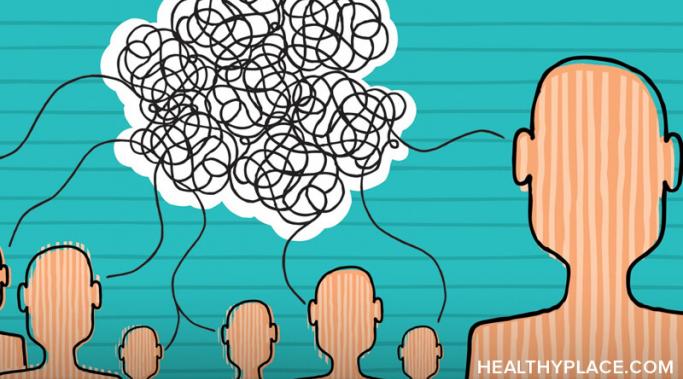Blogs
Recently, I've had to talk about bipolar as a disability way too much. I talk about it online as part of my advocacy work, but that's not the issue. I have no trouble talking about it in general. The issue is talking about my bipolar as a disability in real life. The issue is talking about it to a psychiatrist, to a family doctor, to a nurse practitioner, to whomever I need to in order to get the help I need.
"Ghosting" is the act of abruptly cutting off all contact with another person without warning, of disappearing from their life without explanation and without a trace. It has been characterized as a cruel and cowardly practice that has a devastating impact on the "ghostee," but I would counter that in some cases, ghosting is the only way to distance yourself from a toxic and unhealthy relationship and the only way to safeguard your mental health when no alternative presents itself.
To celebrate my husband Tom’s birthday last week, we went to the Immersive Van Gogh Exhibit, Chicago, one of several venues of this virtual show. I was afraid my schizoaffective symptoms might get in the way of enjoying the exhibit or even be triggered by all the lighting and music. But the experience turned out to be so beautiful--it brought tears to my eyes. Here’s why.
A self-harm recovery journal can be a powerful tool for healing from self-injury. Here are a few reasons why you might want to add one to your recovery toolbox, if you haven't already done so.
Anxiety has a lot to do with activity in the brain. Anxiety also has a lot to do with activity in the gut. The health of our gut plays a significant role in our mood, anxiety levels, and overall mental health and wellbeing. This means that one effective way to help anxiety is to take good care of the gut and the gut-brain axis. Read on to discover why, and learn four ways to reduce anxiety through your digestive system.
By default, I describe myself as an overall positive person. Despite that, I don’t always see myself in the most positive light, and my mental health plays a part in that. Things have been unstable because of it, and I often wonder if I will have anything resembling a positive future with my mind being how it is.
There will often come a time in the healing process when you feel an impulse to share what you've learned with someone else and invest in their eating disorder (ED) recovery as well. I have experienced that urge in my own personal journey, and I've also watched it manifest in other ED recovery warriors I know.
A little while ago, I wrote a post about how I'm okay with my child having a mental illness. More recently, I was thrilled to learn that he feels the same way. My child wants to keep his attention-deficit/hyperactivity disorder (ADHD), and he isn't a fan of the idea of someone taking it away.
You need a mental health sanctuary because life can be chaotic and overstimulating. Being constantly on the go, facing endless responsibilities and demands, is stressful. Add to this our fast-paced, technological world that has us almost constantly plugged in and connected, and it's easy to feel overwhelmed and even out-of-control. When the brain is bombarded by sensory input, it can have a hard time processing everything. One pleasant and effective way to decompress and reset is to create a soothing sanctuary for your mental health. Keep reading to discover what a mental health sanctuary is, why it's vital, and how to create it.
Dealing with chronic anxiety can be lonely when you feel like others don't understand what you go through. One of the challenges with this is that it can cause you to want to withdraw from others.









